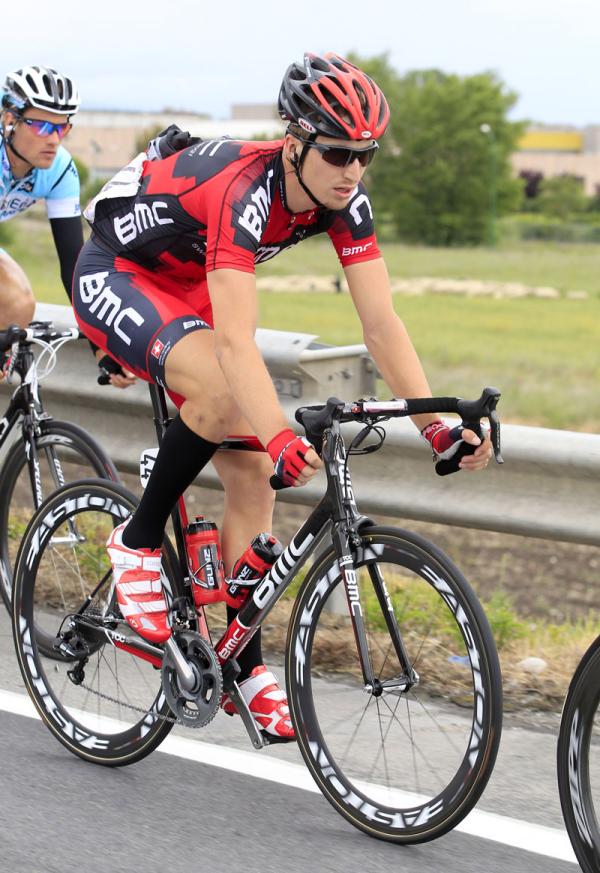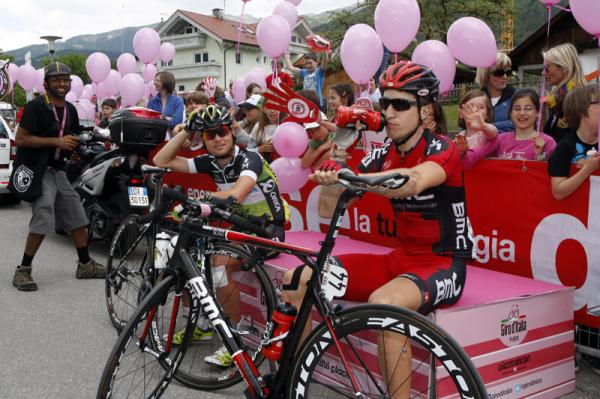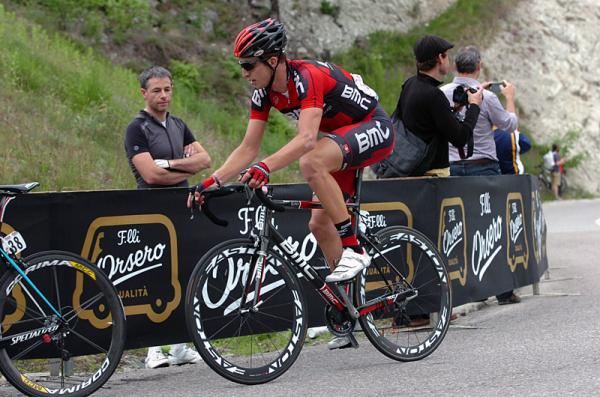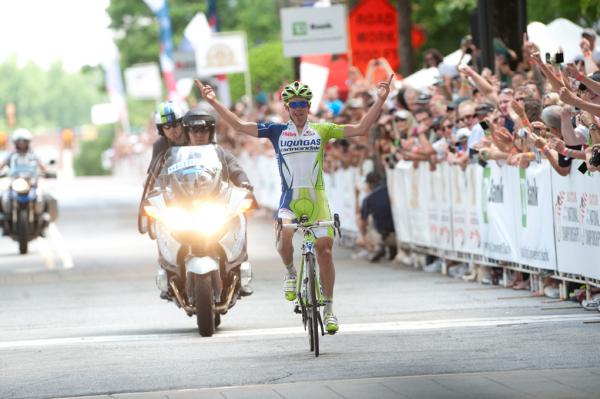Americans back in Olympic mix with Phinney
Fourth place best result for USA since 1996




Since the Summer Olympic Games last took place on US soil, the American team has had trouble both attracting its top riders for the Olympic Games road race and coming away with results. That all changed on Saturday when Team USA was represented in every move and Taylor Phinney was narrowly defeated in the sprint for bronze by Norwegian Alexander Kristoff.
Phinney was disappointed to miss out on the medals, but his team was proud of the result and satisfied that they were one of the main teams to animate the race, even if they missed the final two-man split when Alexander Vinokourov escaped to win against Rigoberto Uran.
"Some would call fourth the worst place to arrive at the Olympics, but I won't focus on that," Phinney said. "I'll get over it but first I have to thank the team."
With Mike Sayers, a full-time director with the BMC Racing team, at the helm of the team car and USA Cycling's VP of Athletics Jim Miller at his side, the team played out its tactics perfectly - only luck and timing were against them.
"The riders came prepared to execute today and the race played out like we thought it would," said Miller. "When we selected this team we had a tactic in mind for this course and all day long everyone rode a great race. Timmy [Duggan] got in the break right away; that was our first goal. Then when we got onto the circuits we had Tejay [van Garderen] and Taylor covering who was going up Box Hill the entire nine laps. We had [Chris] Horner with us, but he had a lot of mechanicals and was coming in and out of the group the entire time. His leadership was key and I think he provided the confidence we needed."
Phinney was in awe that his team would work so hard for him in the finish, with the Tour de France's best young rider van Garderen putting in the last effort to try and put USA back on the Olympic road race podium for the first time since Alexi Grewal won in Los Angeles in 1984. In the end, Phinney equaled the result of Frankie Andreu in 1996.
"Pretty amazing to have the white jersey at the Tour de France give up his ride for you, so it's the least I could do to get fourth," said Phinney. "Alexander Kristoff, I've never beaten him in a sprint before. He's a true sprinter and I wouldn't necessarily call myself that. I was beaten by a better man. It's too bad those two guys got off the front, but they deserve it if they could get away and Kristoff deserves the bronze."
Get The Leadout Newsletter
The latest race content, interviews, features, reviews and expert buying guides, direct to your inbox!
Horner was especially pleased about Phinney's result, even though Phinney himself was a bit down afterward. "I don't care what anyone says about fourth," Horner said. "He's a young kid and it's a fabulous result. Phinney was a little down, and I told him 'Phinney, you're a stud. This is an unbelievable result', and the the team looked fabulous on TV."
The roads all along the course were littered with spectators, with sections of Box Hill and the approach to the finish being the most heavily attended. Phinney said the fans gave him a huge boost of energy when his body was rebelling against the effort.
"The inside of my legs started cramping in laps eight and nine," explained Phinney. "I really felt terrible in the last 40 kilometers. As we got closer to the finish, the crowds were so loud and Tejay had been doing such a good job, it kinda hit me that this is the Olympics and I'm going for a medal right now and this isn't going to happen again - at least not in the near future."
"It was a wall of sound. It definitely helped bring me home."
Duggan nets a tactical advantage
The reigning US Pro champion Duggan was brought onto the team not only for his selflessness, but for his ability to ride at the front and get in breakaways. He did exactly what he was told and slipped into a move 20km into the race, allowing Team USA to be freed from any responsibility of chasing.
"It was kind of scary for the first 20k, they were just rolling along. Every kilometer that went by without the Brits or the Germans chasing was making it easier for them. We got into that technical section and we knew it was the chance for the early break to go. We made the right move," Duggan said.
"We had a great group, all the big teams had a guy up there and we worked really well - it was kind of an ideal situation, and exactly what I was looking for. That was my role for the team today and I was happy to fulfil that."
With only four riders from the Great Britain team chasing in service of Mark Cavendish, Duggan's group of 12 had a strong advantage, especially considering the level of cooperation amongst the group.
"Coming into the circuit, that's when it was to our advantage. When it was a wide open road and we were swapping off, we were going to be way stronger than four guys back in the field leading the pack. We were talking about trying to open up the gap before we got to the circuits because there it is harder for 12 guys to keep the momentum. You saw that we didn't increase our gap there."
Behind Duggan, there were several counter-attacks from the field as the race wore on and the advantage of the leaders shrank from six to two minutes. Team USA sent both Phinney and van Garderen chasing after moves, leaving Farrar in the bunch for a possible sprint. The tactics nearly netted them the medal.
"I just felt good in the middle of the race and saw these big names going and followed," Phinney said. "We went on the fourth lap and our group got caught and I went up to Tyler and asked if it was OK if I followed those moves, and he said 'that's OK, that's fine'. So we went again on the next lap.
The only downside for the team was the mechanicals encoutered by Chris Horner which prevented him from being more active in the race after the early move. "I had a lot of bad luck today, so I just had to help my teammates and represent the team as well as possible. I was the first guy to attack. I wanted to get the race going to make life as hard as possible for the Brits."

Laura Weislo has been with Cyclingnews since 2006 after making a switch from a career in science. As Managing Editor, she coordinates coverage for North American events and global news. As former elite-level road racer who dabbled in cyclo-cross and track, Laura has a passion for all three disciplines. When not working she likes to go camping and explore lesser traveled roads, paths and gravel tracks. Laura specialises in covering doping, anti-doping, UCI governance and performing data analysis.